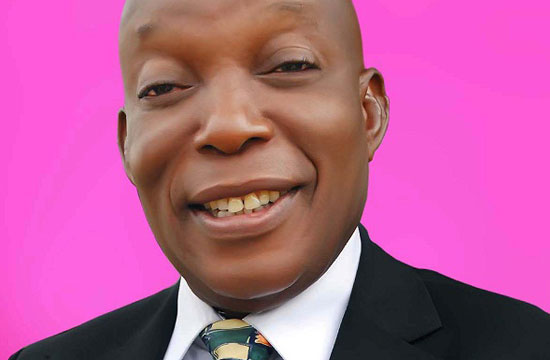- Home
- /
- African Winner of Cannes Film Award
African Winner of Cannes Film Award
Souleymane Cissé watched his first movie at age seven, and from that point his in his life his excitement for movies set his everyday life on fire for studying and making movies. At the age of ten he was going to the cinema theaters every day. He went to primary and secondary school in Bamako and Dakar, Senegal, where his family resided for a very long time. In the wake of finishing his tutoring, Cissé was prepared as a film projectionist in Moscow on a three-month grant in 1961. He travelled back to Moscow in 1963, and studied filmmaking on a grant at the State Institute of Cinema. He returned back to Mali in 1969; and was appointed the Director General of SCINFOMA (Service Cinémato-graphique du Ministère de l’Information du Mali).
The Malian movie producer Souleymane Cissé was born in 1940. He is known in Africa for his storyline, plot and building block in films. He was viewed as one of the significant African movie producers of the late twentieth century. He was the most important African to win a momentous honor at the Cannes Film Festival in France.
Cissé made three movies in Moscow, one of which, L’Aspirant (The Aspirant; 1968), was granted unique notice by the State Institute of Cinema. In any case, he has said that he figured out how to make films in his initial a long time at SCINFOMA, where he made about thirty newsreels and narrative movies, cautiously analyzing the consequences of his work. Cissé made films so that individuals could get African social orders. He intended to portray steadfastly the social heritage, issues, and yearnings of Malian and other African individuals. The motivation for his movies came from his perceptions of life around him.
Cissé’s building block in films shot in Mali are in the Bambara language and have gotten grants at African and other global film celebrations. Interestingly, “Waati”, about politically-sanctioned racial segregation and the requirement for Africans to get to know one another, was shot in Abidjan, Ivory Coast, Namibia, and South Africa
Lair Muso “The Young Girl”1974 Cissé’s first component film is about a hard of hearing quiet metropolitan Muslim young lady who becomes pregnant by one of her dad’s workers and is dismissed by her loved ones. As well as recounting Tenin’s story, Cissé inspected issues of young ladies who live in metropolitan regions and the ethical contentions that emerge from sticking to “conventional” values in contemporary metropolitan culture. “Sanctum Muso” won the bronze award at the Carthage Film Festival.
“Baara” (Work; 1978) won significant honors at FESPACO (Festival Panafricain du Cinémad’Ouagadougou) and the Carthage, Nantes, and Namur film festivals. It is about a youthful watchman who has come from the village to the city where he in the end looks for a decent job at a material processing plant with a designer whose thoughts regarding work association are excessively just for his manager. The film uncovered the covetousness and humiliation of the business tip-top and features the arising social familiarity with laborers and ladies. The melodic score by Lamine Katé depends on contemporary people custom and its verses are utilized as an extra analysis on the state of laborers.
“Finyé” (The Wind; 1982), which additionally happens in a metropolitan setting, won significant honors at FESPACO and Carthage and was accepted at Cannes in 1983. It is about affection between two young people whose guardians, individually a tactical lead representative and a customary boss, object to the relationship. The two young people take an interest in a dissent over the misrepresentation of test results and are imprisoned. Cissé’s topic is the acknowledgment of the force of the society fighting against the public authority. Like Cissé’s two prior films, grounded in real factors of Malian life are significant somewhere else in Africa.
“Yeelen” (Brightness; 1987) is about the social legacy of the Bambara and Mande-talking people groups of West Africa. It depends on oral practice and incorporates the custom of the Komo secret society, which Malians know about however few have at any point seen. The plot concerns the contention between ages, a dad and child, and the quest for and securing of information. In “Yeelen” Cissé purposely changed his style from that of an educational socio-political producer to a more expressive style grounded in Bambara cosmology and ideas of reality. However Cissé thought about “Yeelen” his most political film. Pundits adulated “Yeelen” for its amazing photography, great melodic score, magnificent acting, and exemplification of folklore, and widespread availability and importance. In 1987 Mali granted Cissé the Chevalier du Mérit National award for “Yeelen” and he also received the Jury Prize at Cannes.
Cissé, similar to a few other African movie producers, shaped his own creation organization, Les Films Cissé, and delivered low-budget films in regular settings. He utilized neighborhood entertainers and entertainers who had not been prepared in acting school and a large number of whom had not recently acted in a film. Les Films Cissé delivered productions of his later component films, which empowered numerous Malians who couldn’t go to an auditorium to partake in his movies. Cissé’s element films have been captioned in numerous dialects and have been shown around the world. In 1991 Cissé laid out the N’Fa Cissé, an honor which is given yearly in Mali for imaginative creation.
Cissé’s creations hold their enduring allure at film festivals, and commentators never tire of communicating endorsement and giving further knowledge into the importance and ramifications of his works. He was highlighted in arranged honoring narrative assortments including the souvenir manual of the Cannes film celebration in 1992. In 1994 Rithy Panh created a video about Souleymane Cissé as part of progressives in contemporary film in Africa, and Hegel Goutier talked with Cissé for Courier in 1996.

Motion pictures DIRECTED by Souleymane Cissé “The Young Girl” Mali, 1975. Starring these actors Dounamba Dany Couliba, Gogo Danba, Fanta Diabate, and Oumou Diarra.
Cissé’s produced and directed a full length film. The perpetual story of a little kid who is assaulted, becomes pregnant, and is then abandoned. It is excruciatingly miserable. The Young Girl also addresses; the development of a totally solitary true life story.
Read More on Father of African Cinema
The primary full length film by an extraordinary movie producer is the timeless story of a little kid who is assaulted, becomes pregnant, and is then deserted is distressingly miserable, and the film uncovers such inseparable social-and strict system that is very terrible. In this intentional exemplary drama plot, Cissé carries narrative accuracy to a portrayal of Mali in the grasps of fast urbanization, and to the developing hole between the upper working class of the high class estates, the road adolescents of Bamako, and the dusty country roads of the country as it used to be. The youthful perfect forfeited by an aggressive adult clearly addresses quietly the evil forced on ladies and the severe load of man’s centric society. The powers of the time were not tricked: Cissé was imprisoned and the film was prohibited for a considerable length of time. “Sanctum Muso” likewise addresses the rise of an absolutely particular pragmatic organization, which consolidates social power with a tribute to the never-ending superiority of the world.
Screenwriters include Souleymane Cissé, Abdoulaye Sidibé, and Cheik Hamala Keita and Bambara. Duration of film was 88 minutes. This movie produced by Les films Cissé.
“Finyé” meaning, The Wind was by Souleymane Cissé Mali in 1982. Starring Balla Moussa Keita, Ismaila Sarr, Fousseyni Sissoko and Goundo Guisse; and Cissé’s remarkable lampoon on Africa’s political class shows two school kids opposing military control and the foundation; it turns wild, heartfelt, and eventually confident.
School kids Bah and Batrou appear to have acquired basically everything, or if nothing else Mali’s important for it: he’s the relative of an African clan leader, and she’s the little girl of a tactical lead representative. However, they’re transitioning during fascism, and as their political activism develops, they before long begin to acknowledge who truly holds the power. Joining the pot-smoking flower children and edgy commanders of Hollywood antiauthoritarian exaggerations with especially pointed (and high-stakes) Malian plot lines, Cissé’s wonderful parody on Africa’s decision class is by turns wild, heartfelt, and eventually confident; the breeze, it appears, could for sure be moving.
This feature film “Yeelen” meaning Brilliance won an international award at the Cannes international Film Festival. Screenwriter was Souleymane Cissé, Duration: 100 minutes. Starring Issiaka Kane, Aoua Sangare, Niamanto Sanogo, Balla Moussa Keita.
In Souleymane Cissé’s enchanting Yeelen (Brightness) released in 1987; a youthful Bambara local, Niankoro (Issiaka Kane), goes out on a journey for other worldly learning. En route he arranges the ramifications to get enormous mysterious powers and sexual powers prior to fighting the alchemist father who deserted him and his mom quite a long time back. This wondrous, idealist proclamation brings out an antiquated universe near the very edge of annihilation and whose resurrection relies on the youthful Niankoro opposing his dad’s other worldly inventions. “You need to know how to deceive to succeed,” says the vindictive Soma (NiamantoSanogo) in the film, expecting the last fight with his child yet additionally stressing different other centric conflicts. Lord Rouma Boll (Balla Moussa Keita) requests that Niankoro help his better half, Attou (Aoua Sangare), consider a kid, yet the entertainer’s penis deceives him and lays down with the lady all things being equal. Furthermore, instead of rebuffing his better half and Niankoro, the crushed ruler offers the lady to the youngster to follow him as his guide. “Yeelen” is film well established in the legends and chronicles of Mali.
Wikipedia refers to “Yeelen” as “the best African film made!”

“Yeelen” is a charming film. It is so devastatingly beautiful. A story about self-confidence, relations and our relationship to time, Cissé paints a universe of individuals attempting frantically to stick to control, their feelings of individuality and position in an ostentatious demand of things. They fall flat, with dreadful power. They fall flat, they guzzle, and they render dreadful spaces mysterious. What, Cissé appears to ask, does a mother owe a child, a child a dad, a lord his subjects, higher powers its natural chandlers’? What’s more, a parent to their unborn kid at the hour of their passing?
Everything, one could contend for in the midst of the unpleasant interests of the human heart? In its scenes, its relational dramatizations and verbalizations of intergenerational struggle, Cissé’s film remains a great film for ever. Its scenes are so finished I could contact them with my experiences as an African.
What’s the main point of the hero Nianankoro’s expedition? Is he a kid who might be a man, lord, guardian angel and destroyer? A kid escaping from being killed by his dad; his painful weight, his responsibility and dishonor, compelled to become hard-bitten by situation, blooded before his time. The hero Nianankoro asked his dad “Prior to killing me, let me know the justification.” An explanation; a justification behind the torment, as though any rationale might at any point get the job done for the things that leave us conked out and frightened. In Cissé’s film, as life, there is no answer from the dad. All we get, an imprudent murmur – “don’t bother.”
Cissé’s award winning movie is a magnum opus.
Witchcraft, premonition and deep African cultural values are strongly imbedded in “Yeelen”; there was likewise a certain musicality to the conversation in strict African dialect. The meticulousness of the way that cultural values that are infused in “Yeelen” make it feel original and astonishing. The subtleties and intricacies of the Komo or the practices that make Nianankoro’s story so powerful is magical. This is a typical African movie that does not care to satisfy European or American taste; but a film from the depth of an ancient African story teller or groit’s soul to those who desire to enjoy a story about life.
This is a story about Africa by an African that delves beneath the soul and penetrates our heart’s desire to know nothing but the whole truth, looking through a glass darkly painted with our valuable cultural values!
This blog is written by Abasseno Uko; who graduated from the Stage Group Theater at Union Square in San Francisco in 1978, where he studied acting with Wendell Philips, Keith Philips, and Jean Shelton. He is an actor, writer, director, experienced movie producer and Africa’s Topmost screenplay writer.
After working as a stage actor, theater director, theater producer and theater manager Abasseno went on to study film making at the San Francisco Art Institute; graduating in 1983 with a Bachelor of Fine Art degree. He directed the movies BLOOD MONEY, BLIND TRUST, RETURN TO KAZONDIA, DOMITILLA and produced MAITASINE in Africa. He is the CEO of Filmagic Africa Ltd, and an expert coordinator of productions for foreign production companies shooting movies anywhere in Africa!
Abasseno Uko

Currently, I am working as an Actor, Writer, Director and Film Producer in Africa. My company Filmagic Africa Ltd specializes in coordinating movie productions for foreign production companies shooting anywhere in Africa!
FOLLOW US ON INSTAGRAM @moviesbyespresso




